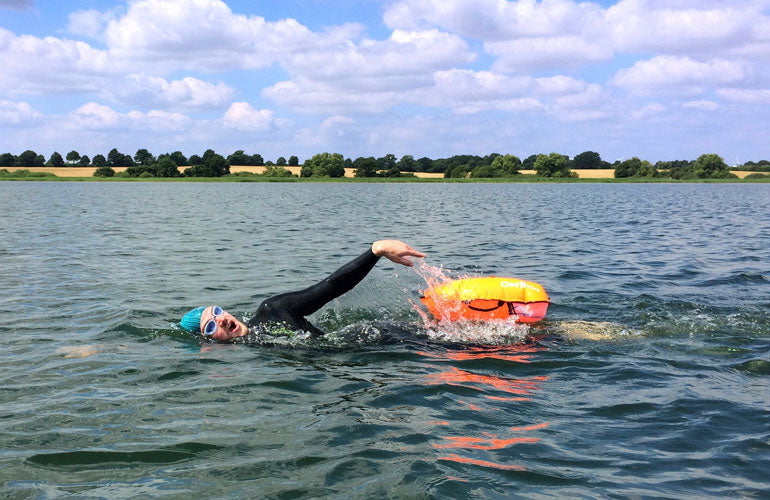If you have never heard of swimming socks before, the concept of them might sound a little odd. However, they do serve a specific and very necessary purpose for open water swimmers, or even leisure trips to the beach.
Why Should I Wear Swimming Socks?
There is a difference between swimming socks and swimming shoes, and there are several considerations to make before you invest in a pair of either. Let us take a closer look…
Swimming Socks vs Swimming Shoes: What is the Difference?
As you might be able to guess, the fundamental difference here is one has a rubberised sole, and the other does not. Both socks and shoes typically consist of a neoprene upper, but the sole of the socks usually has small gripper spots of rubber, rather than an entire sole.

Why is there a need for both I hear you ask? Well typically, swimming shoes are used by water-goers who are in kayaks, on paddleboards, riding jet skis – or any other kind of aqua-transportation. Swimming socks however are designed more for actual swimmers. The shoe will impact your stroke and weigh you down, but a swimming sock is designed to be unobtrusive, light and have little to no hindrance to your swimming technique.
Why Do People Wear Swimming Socks?
The main benefit of wearing swimming socks is protection. Entering lakes, the ocean, and other wild swimming hot spots can often require crossing a bed of sharp stones or coral. Swimming socks prevent such surfaces from damaging your feet or causing injury, meaning you can enter the water without worry. Their anti-slip design also means that you can step along wet rocks and other slippery surfaces with much more confidence and speed.
Another important feature of swimming socks is the fact that they help to keep your feet warm. In open-water swimming, it’s important to maintain a healthy core temperature in cold waters. Neoprene (the material typically used for swim socks) offers this insulation, as well as being light and quick-drying.
Lastly, if you compete in triathlons – depending on the individual event rules – swimming socks can give you a distinct advantage through transition areas from water onto land. The extra speed and confidence they will give you might just make the difference!

A Few Considerations When Buying Swimming Socks
If you are a keen open-water swimmer or frequently take part in watersport activities, a pair of swimming socks would be an inexpensive but highly beneficial investment. Before you purchase a pair though, here are three small tips:
Make sure you purchase swimming socks with a truly flexible sole. Not only will this be more comfortable, but it will also allow you to swim without increased drag or weight.
If you are a year-round swimmer in open waters, it might be worth considering a pair of summer and winter swimming socks. The thicker the neoprene, the more insulation they provide to your feet, which will maintain better circulation. So in winter, you might want a pair of 3-5mm thick socks, but in summer you may only need half that thickness.
For longevity, make sure your swimming socks are thoroughly cleaned and dried after each use, as their soles can take a battering on the murky floors of rivers and lakes. A simple hosing down and wiping off will suffice, then leave to dry off in the sun (this will usually take only five or ten minutes).
We hope you have found this article useful, and maybe you will consider investing in a pair of swimming socks for your next water-based adventure!

